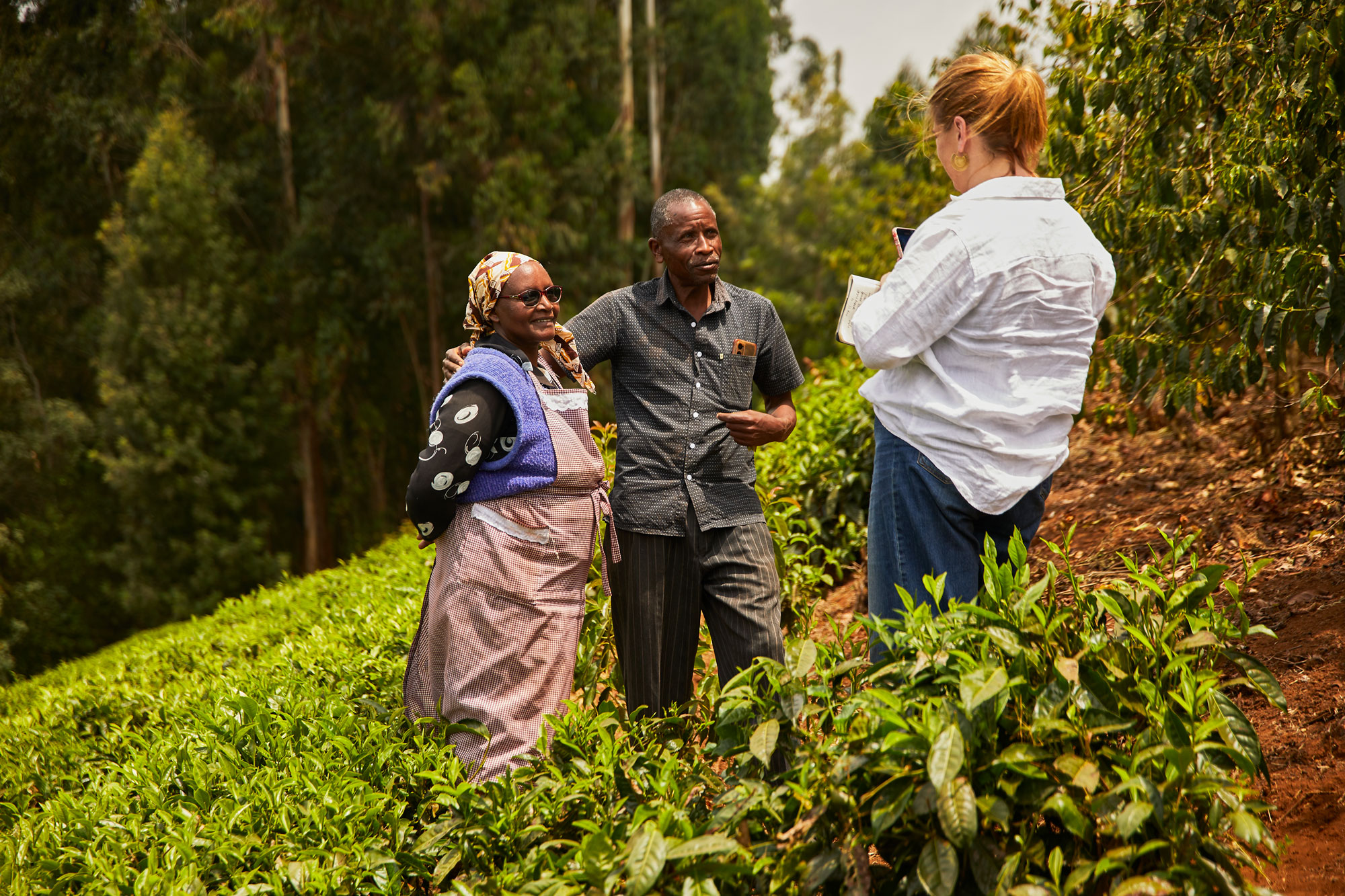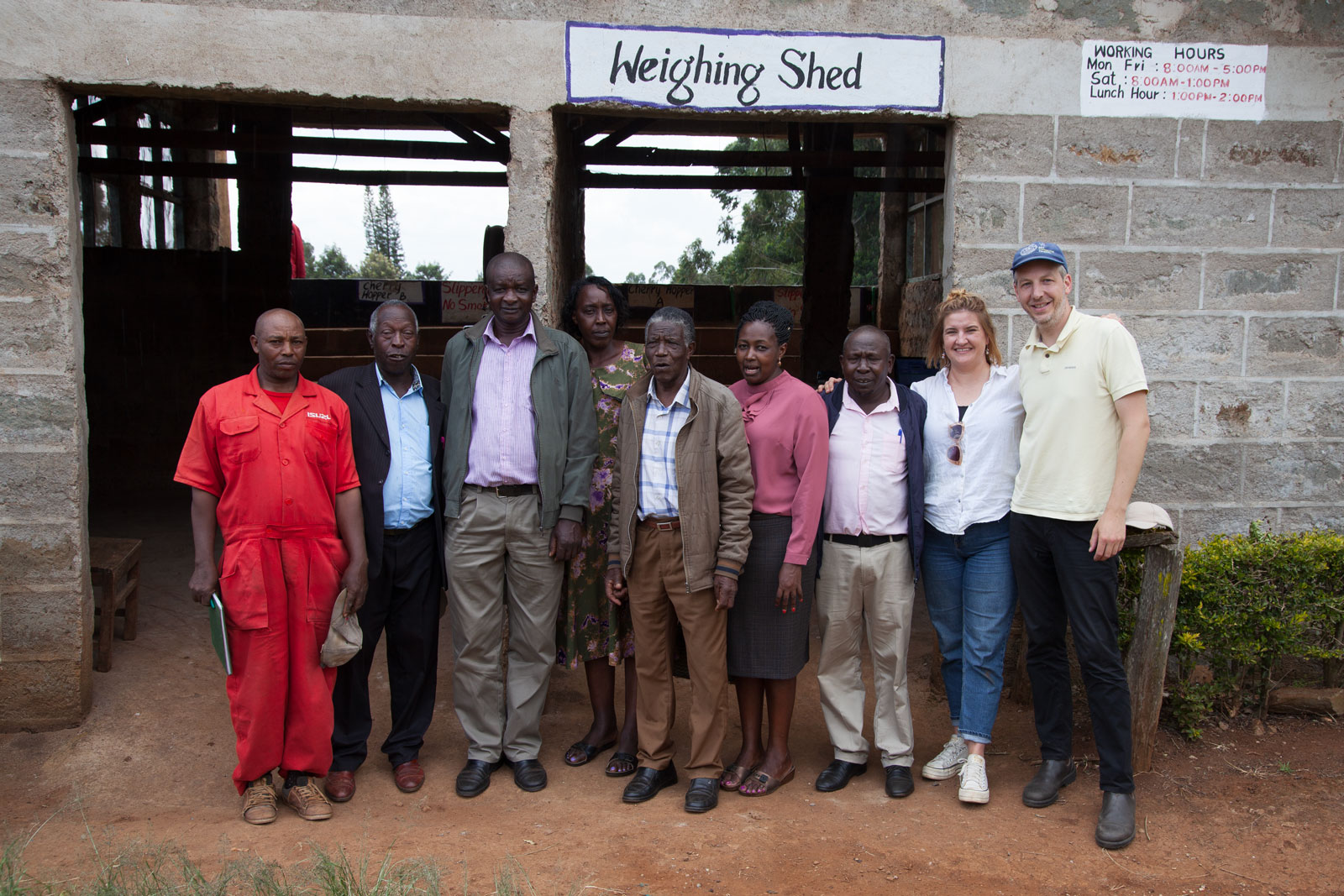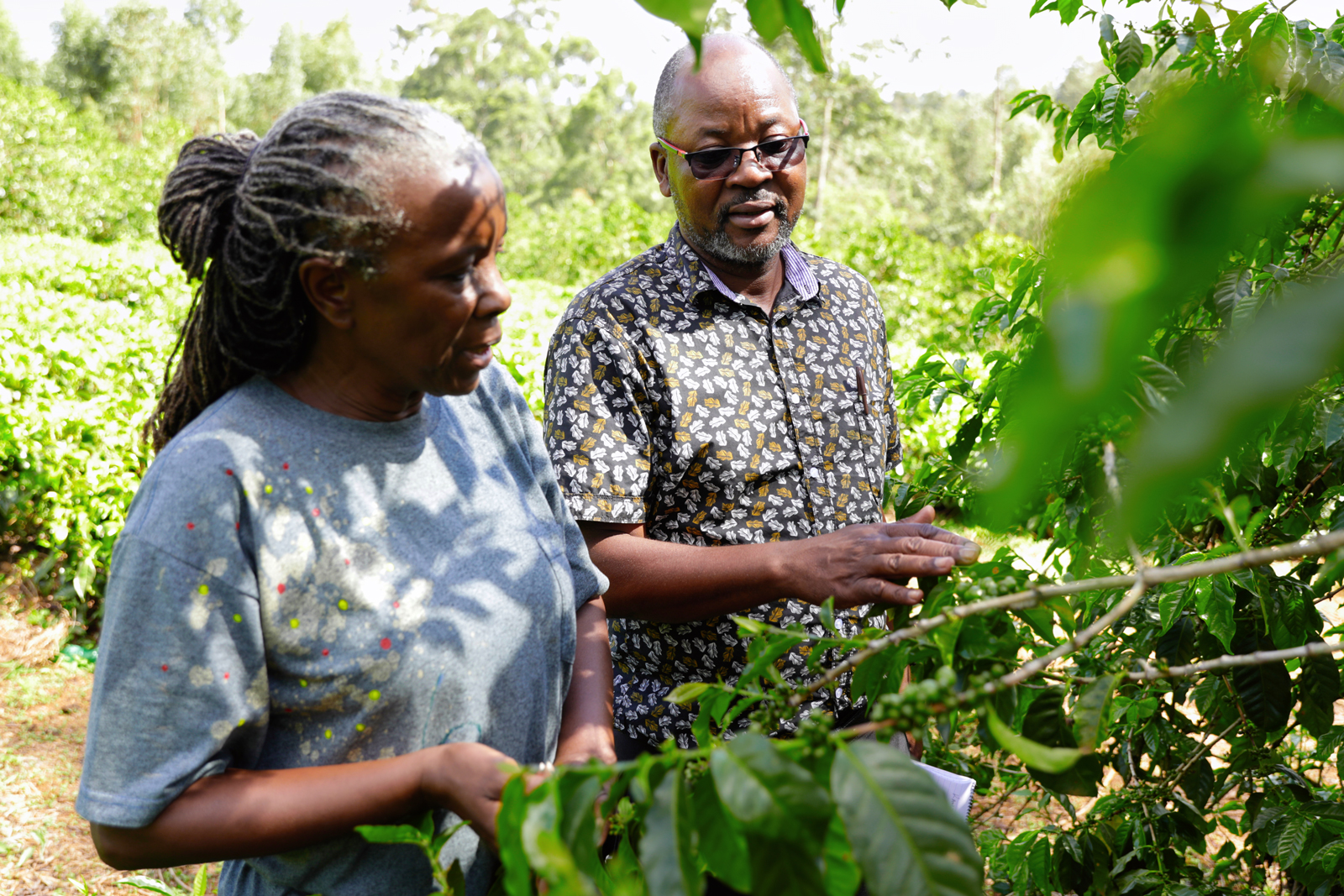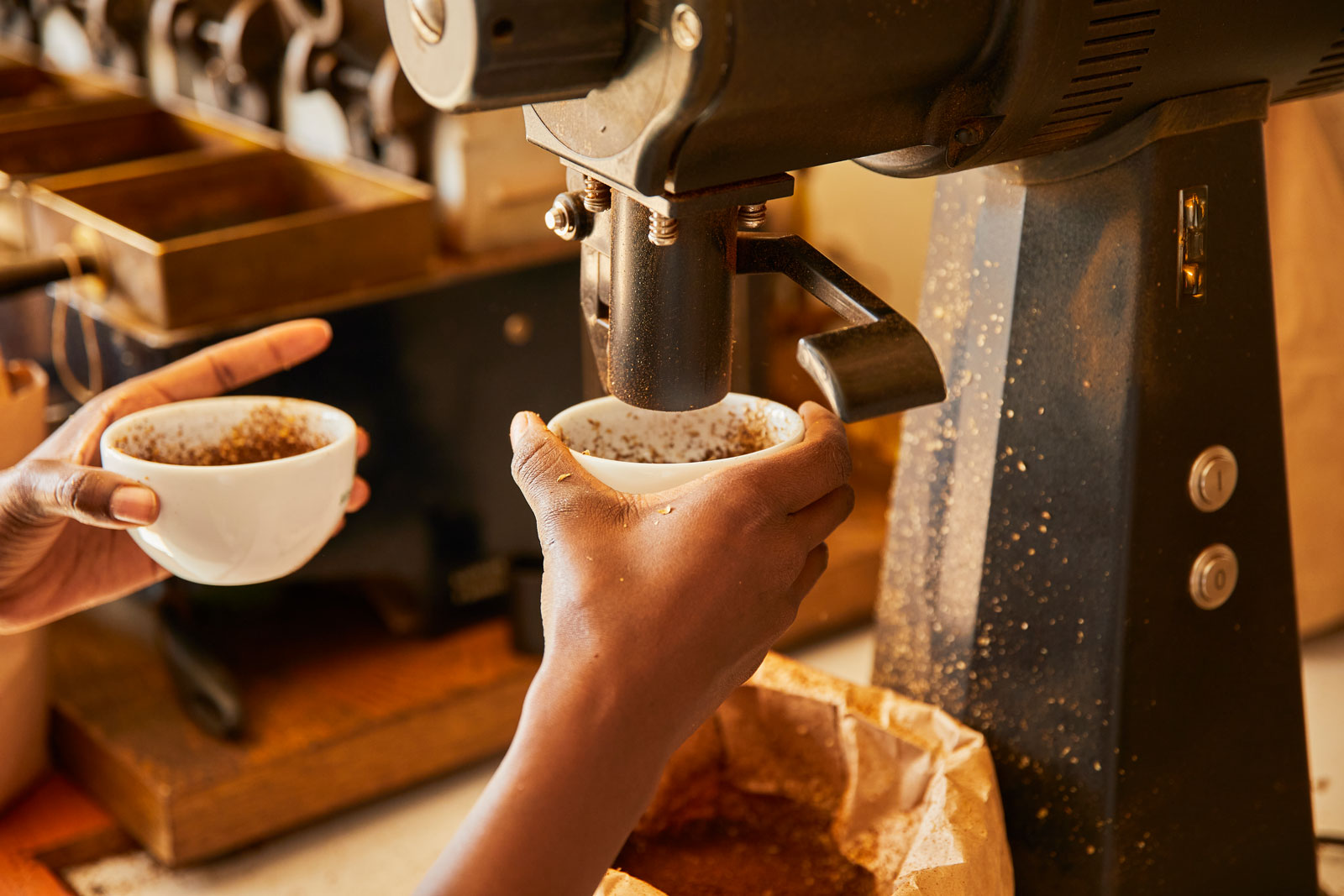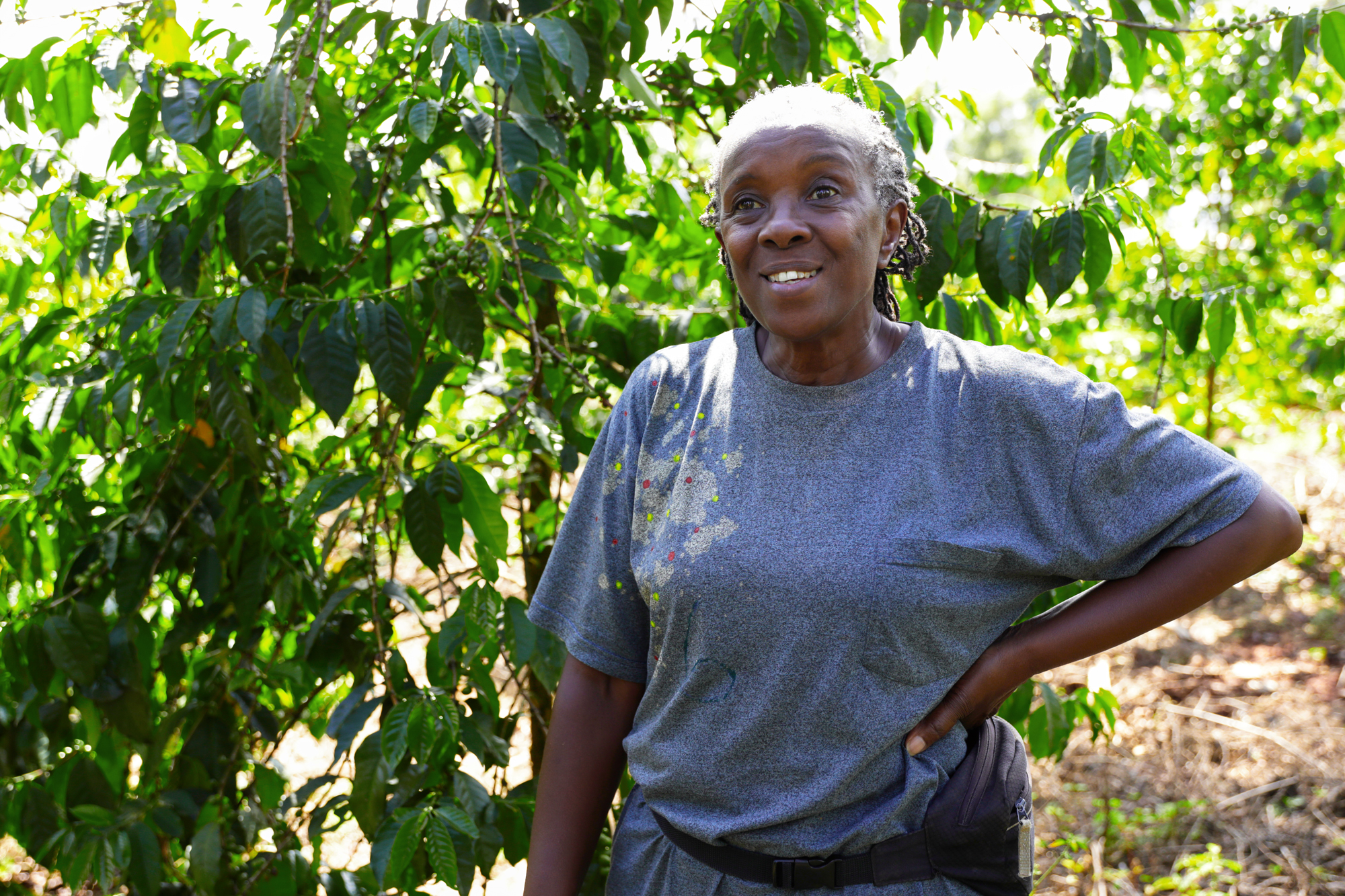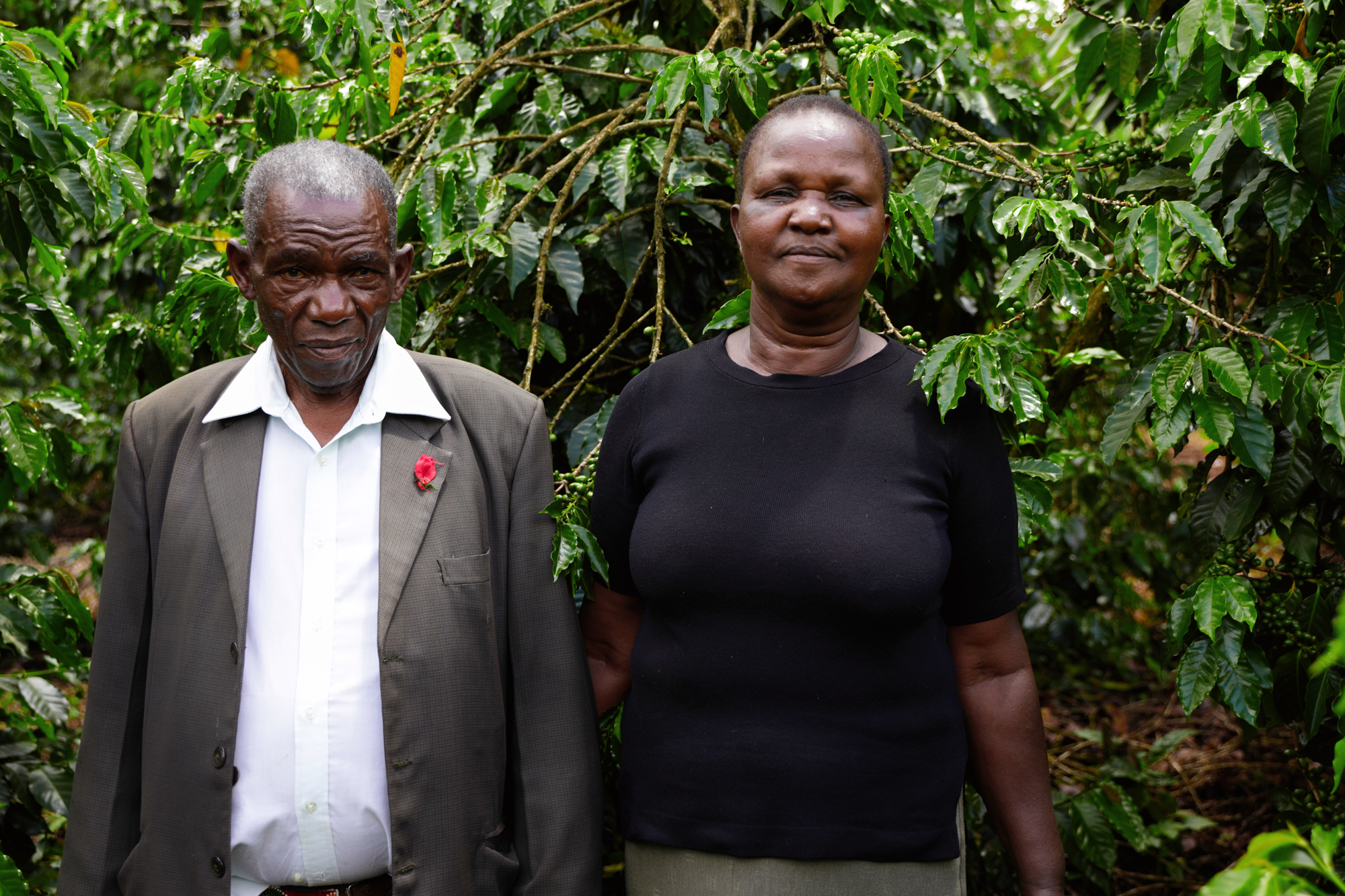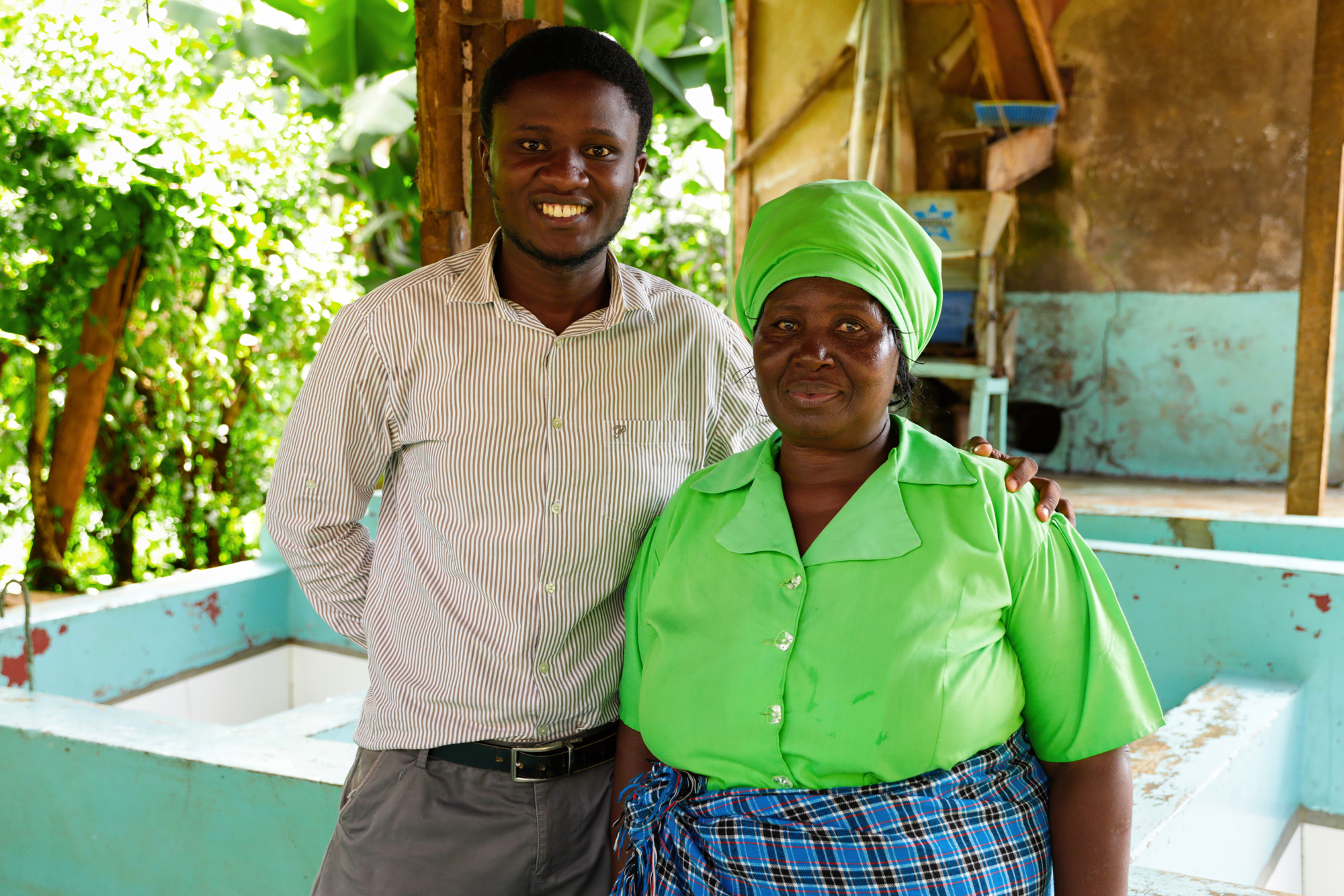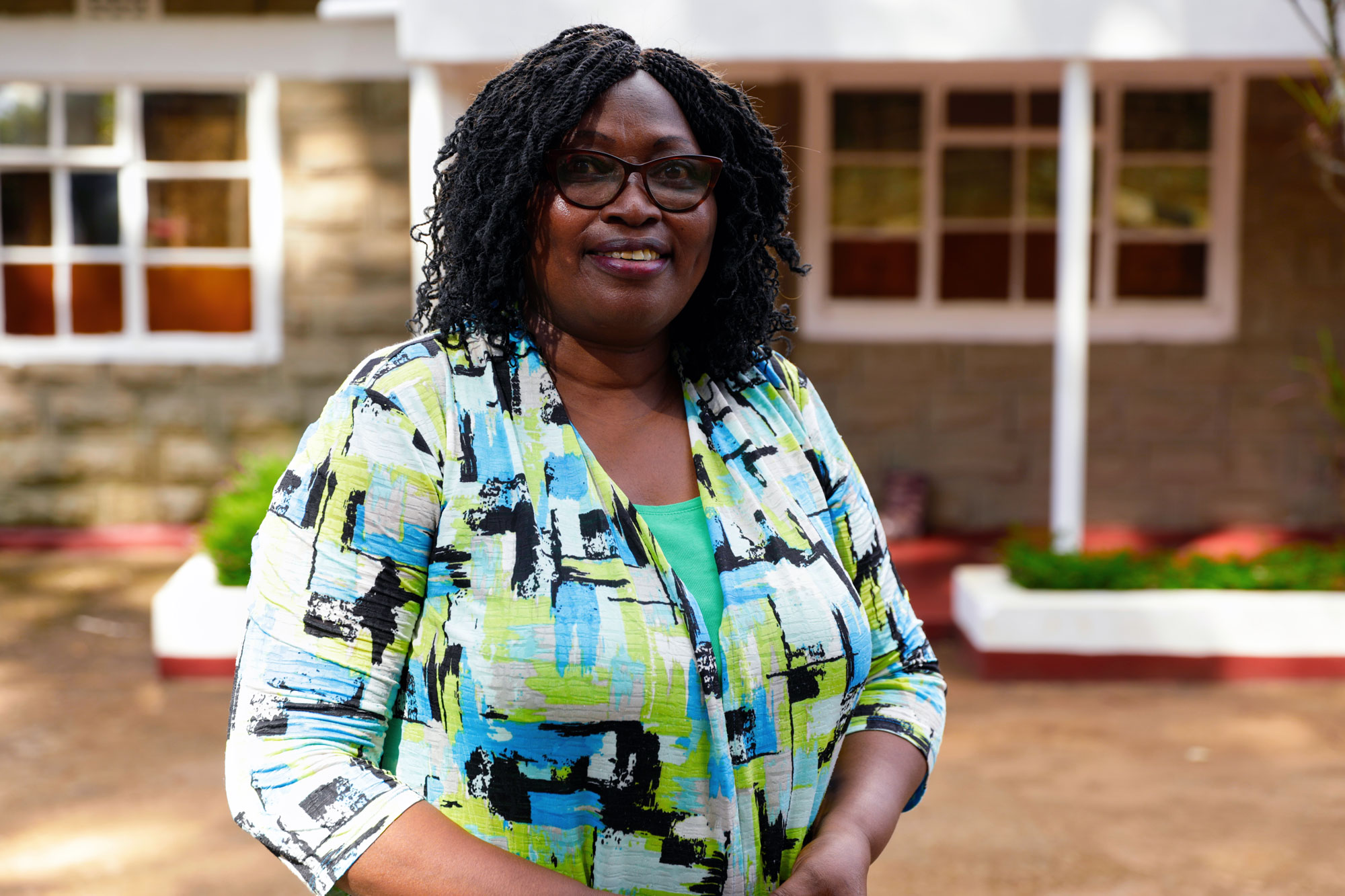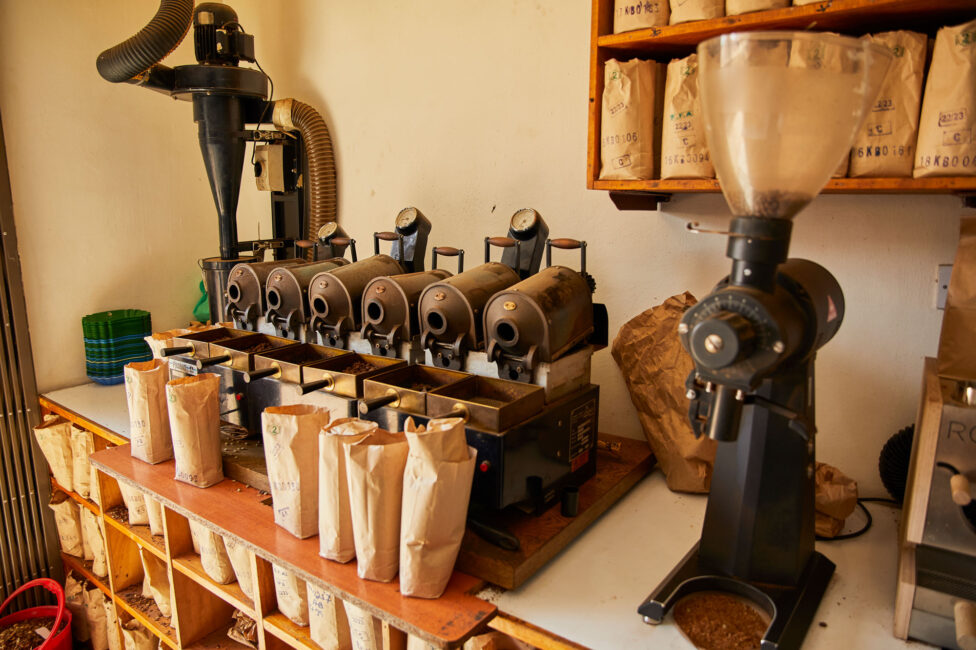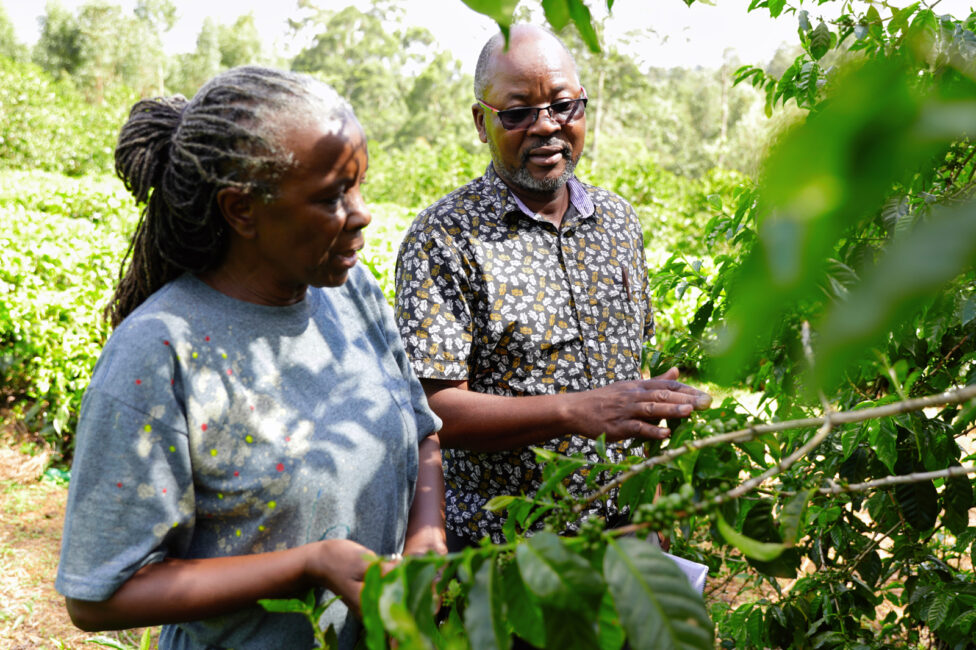The Big Kenyan Coffee Shake-Up: Part Two
Published 21 May 2024
The Kenyan government’s sweeping reforms to the country’s coffee sector in 2023 have disrupted the supply chain and changed the way many key players are operating. For specialty buyers like MCM, this meant heading back to the drawing board to strategise and adapt our purchasing within the new model.
As the new legislation came into effect, we knew purchasing from the 23/24 season was going to be very different. Key to our success was staying true to our core values of quality and traceability, supported by sustainable and responsible business practices.
We’ve spent the months leading up to and following the latest harvest picking the brains of our partners and peers to better understand the historical context of Kenyan coffee trade and gain insight into the impact of the reforms. Over this two-part series, we’ll share what we’ve learned through many conversations, our own observations and careful research. In Part One we explained how Kenyan coffee was traded before the reforms, what the reforms are attempting to address and how this has impacted trading in 2024. Read on for Part Two, where we share the insights gained during our 2024 visit, how these have informed our buying strategy, and our priorities for sourcing from Kenya in the future.
Why visit Kenya during so much uncertainty?
With little clarity or understanding of the new reforms outside of Kenya, and so much flux within the country, spending time on the ground this season was imperative for our team. Without knowing exactly how or from whom we would source this year’s offerings, our goal was to meet with producers and cooperatives whose coffees we have previously sourced; to hear their perspective on the new reforms and navigate a way forward. The resulting conversations were hugely illuminating and helped us to form our approach to the 2023/24 purchasing season.
Historically, we have bought coffee outside of the auction system through direct sales facilitated by a trading partner who also provided post-milling services — including defect sorting, packaging, transportation, consolidation, and financing — which were absorbed into an FOB price paid by MCM once the coffee hit the water (read more in Part One here). However, this model of purchasing was not possible post the reforms, because traders are now only able to purchase coffee via the auction system. And whilst direct sales are possible (via a broker) the infrastructure to facilitate this sale and the post-milling services is much more complex to navigate for speciality buyers like MCM. For some growers, this wasn’t made clear by the government’s messaging around the reforms, so it was important to meet in person and explain our position and requirements as a buying partner and importing business.
During our trip we also toured several dry milling facilities, where we saw firsthand the bottleneck effect of the government rescinding licenses for private mills. Parchment was being delivered into warehouses at facilities unprepared for such large volumes; at the most overwhelmed mill we witnessed towers of sacks without discernible lot tracking, covered in thick dust, waiting to be milled by machines that weren’t operational when we visited due to an unexpected power outage. Based on these observations, we resolved to not buy coffees from larger, under-resourced mills, and instead prioritised lots that were coming through smaller county mills that are operating more efficiently. Unfortunately, this precluded us buying from some of our long-time cooperative partners’ factories (including Mwiria, Kiangundo, Gachuiro and Ichuga) whose boards had already committed to delivering this year’s crop to larger mills. While this should improve with time, it will take some time for the system to become efficient again, because as our partner on the ground Wycliffee Murray explained, “The cooperatives have rushed to establish milling operations, which is currently taking shape. Unfortunately, these are regional in nature, which means capacity may be adequate, but poorly distributed.”
Who did we work with this year?
Since we began directly buying coffee from Kenya in 2017, our line-up has celebrated small estates who process and market their coffees independently of the cooperative system. As with every other region we source from, our goal is to invest in direct relationships and work towards a long-term committed partnership that benefit both parties. Through this model, we have connected to several key individuals in Kenya’s coffee sector who we called upon to help us navigate this challenging season.
One of these people is Wycliffe Marayi, the former Managing Director for Kahawa Bora Mill (a private mill whose license has now been revoked), who now works as an independent contractor. Wycliffe is a long-time friend to MCM and has an extraordinary knowledge of Kenya’s coffee industry and the people that work within it. During our time on the ground, Wycliffe was instrumental in connecting us to smallholder farmers and forward-thinking cooperatives, and in communicating our needs to these players. Through his network, we were able to cup and commit to buying lots from several small estate holders in Kenya’s central highlands. Read more about Wycliffe, in his own words, here.
Several of the estate-holders we met belong to the recently formed farmer group, Kirinyaga Arabica AA. Founded and led by our dear friend and long-time producing partner, Joseph Karaba (of Kabumbu Estate), each member of the group independently grows and processes coffee at their respective shambas and factories, located in the neighbouring counties of Embu and Kirinyaga.
Joseph is a charming, thoughtful and progressive man, especially when it comes to his farm and industry. We’ve felt a kinship with Jospeh and his wife Pauline since we first purchased their coffee in 2019, and through this partnership we have seen how much an equitable and committed partnership can benefit both grower and buyer. As Joseph shared in 2023: “We love when people like MCM end up taking our coffee. I feel pride when people like you take my coffee, because I really feel like I receive payment for my work. When I get something good from you, it helps us improve our house, and the lives of our kids.”
By forming Kirinyaga Arabica AA, Joseph is hoping to open a premium market to his coffee-producing friends and neighbours, by connecting them to specialty buyers like MCM. Knowing how impeccably Joseph’s farm, Kabumbu, is run, we were confident that his fellow members would present great quality on the table. After cupping on the ground, we decided to purchase their AA and AB lots.
How did we approach buying?
While some of the farmers and cooperative boards we met with during our trip were hopeful that we could buy their coffee directly, as we learned more about the realities and challenges of the season it became increasingly apparent that this would not be possible this year. Most growers (who are accustomed to selling coffee in Kenya Schilling directly after milling) are currently lacking the capital, resources or know-how to offer or finance the necessary quality assurances and logistical efficiencies a buyer like MCM requires. Without the network, leverage or oversight of being on the ground, we recognised that doing this ourselves from Australia would involve too much risk, time and uncertainty. We instead decided to work with a reputable trader (Dorman’s Coffee) this year, to buy coffees on our behalf and conduct our contract post-milling coffee preparation and logistical services.
Within the new model, we found a way to directly work with Joseph’s famer group, Kirinyaga Arabica AA. Wycliffe was able to to liaise with the farmers and their broker on our behalf, to agree to prices directly with each farmer prior to the auction — offering higher-than-average prices for AA and AB grades, informed by both the quality on the table and the prices secured for equivalent lots at earlier auctions. With the cooperation with the growers, broker and our trading partners, we determined when the coffees would be auctioned and ensured that we placed the highest bid for their coffee on the day. In the case that coffees did not reach the pre-determined price at auction, we topped up our payment to match that negotiated price. This plan worked, in large part, because as Wycliffe puts it, the “new rules encourage farmers to get more involved in the value chain.”
In the end, this model ensured the farmers made a good price for their coffee reflective of cost of production and the quality on the table and, we hope, will contribute to the long-term nature of our relationship with Kirinyaga AA Arabica. After the coffees were secured at auction, we paid our trading partner an additional fee to prepare the coffee for export, provide physical and qualitative assessment, and transport and consolidate the coffees for shipment. Dormans also financed the coffee from the point of sale at auction, through to shipping (FOB).
Whilst we love buying from small, independent estates, buying from cooperatives is also an important component of our buying strategy. In many cases, small estates will only produce 10-20 bags a season, so it’s through co-op owned factories like Kagumoini and Rianjagi that we can secure much-needed volume. Factories also typically produce high and consistent quality because there is more labour available at these sites and processing practices are overseen by a manager. This year, we chose to select our factory lots from Dorman’s inventory (ie. coffees that had already been milled, transported to Nairobi and purchased at auction) to ensure that our lots wouldn’t be held up during the milling stage or present compromised quality upon delivery to Dorman’s warehouse.
Either from small estates or from cooperative owned factories, we have chosen coffees that we loved on the cupping table – prioritising bright acidity, great depth of sweetness and a clean aftertaste. We hope that you will love them too!
Why don’t we have all of the coffees we’ve featured in the past?
One of the major considerations for the 23/24 season was to cup and select our line up quickly. We were keenly aware of the the logistical challenges caused by continued unrest in the Red Sea zone, so decided to do all of our buying during the trip to avoid complications and delays. Given the aforementioned bottlenecks at the milling stage, many of our favourite coffees did not come to auction until after we had left Kenya, meaning we did not have the opportunity to cup and asses them to include in our order.
Furthermore, working within such a new and unstable supply chain presented obstacles in securing the traceability we want to offer for every coffee we source. With this in mind, we prioritised sourcing from growers we met this season, or cooperatives that were part of our trusted supply partners’ network. After careful consideration, we also made the conscious decision to buy a smaller volume from the 23/24 season, minimising our risk by buying enough to meet but not exceed the requirements of our long-time Kenya. Accordingly, we have fewer lots and lower volume available now than we would typically offer at landed stage.
What are MCM’s plans for future sourcing in Kenya?
We plan to continue sourcing from small estate-holders and forward-thinking cooperatives – particularly those that are already positioning themselves for success in the new trading model (eg. Cooperatives that have established their own dry mills, growers who have the capacity to trade outside of the auction, and individuals like Wycliffe who can connect us to both). We hope to develop and maintain close and robust partnerships with growers and supply partners who have the same long-term vision and values as MCM. By prioritising these relationships and remaining committed to quality, transparency and traceability we are confident we will rebuild a strong portfolio of coffees from Kenya that we can offer, year after year.
As the dust settles on the new reforms, and the Kenyan government implements further changes in response to lessons learned this year, we will have a better idea of what to expect from the 24/25 season, and how to plan for it ahead of time. We will also be assessing our current line up through our thorough QC protocols, giving us a clearer idea of the coffees’ quality performance over time and informing our purchasing goals for next year. By keeping our suppliers informed with how their coffees are performing, we support them in achieving the best quality possible with their crop — a practice which also helps us establish even greater trust and openness with each other.
Finally, we will continue to support our customers with great transparency, storytelling and context building. We always want you to feel informed and confident about the coffees you secure through MCM and are here if you have more questions!
What coffees are in the line up for 2024?
We’re thrilled to introduce our the line up of available smallholder lots from Kirinyaga AA Arabica and quality focused factories.
Read below for more on each estate and reach out for samples of any available offerings.
Kanyi Estate | Embu County
Second-generation farmer Mukami Mugo inherited two-hectare Kanyi Estate from her parents, who initially purchased the land in the 1960s. The farm was initially planted with SL28 and SL34, with Riuru 11 eventually introduced. Mukami has been processing her own coffee since 2000, when she built a small factory at the estate.
Kathare Estate | Kirinyaga County
Husband and wife Richard Kiama and Beatrice Muthoni Murithi established Kathare Estate in 2006. Here, the couple grow SL28 and Riruru 11 variety trees on three hectares of land, and have been processing their own crop onsite since 2016, when they built their factory.
Kimbo Estate | Embu County
Owned by Lucy Wanjeru and her son Christopher Munene, Kimbo Estate was initially purchased by Lucy’s late husband”s father, whose name was Kimbo, in the 1960s. Lucy’s husband eventually inherited the land and decided to expand it to the eight hectares it covers today by purchasing nearby farms. Lucy took over operations after his passing, sharing duties with her son Christopher, who is also a medical doctor.
Rurima Estate | Embu County
Fifteen hectare Rurima estate is owned by a family cooperative and managed by one of the siblings, Lucy Wanja Ndogo. The land was initially purchased by the family’s grandfather, whose name was Rurima, in the 1960s and has been parcelled and passed down to various extended family members since. All of them have been processing their cherry together on site since the 1980s, and close records are kept to ensure earnings are distributed fairly.
Samuga Estate | Kirinyaga County
Established by Stephen Munene Gachuiri in the 1990s, Samuga Estate is a ten-hectare farm planted with SL28, SL34 and Riruru 11 on the slopes of Mt. Kenya. Soon after purchasing the estate, Stephen decided to build a small factory onsite, realising this would lead to better quality and a higher sale price. Today, operations are managed by Stephen’s son.
